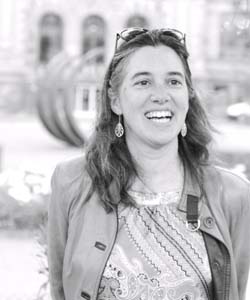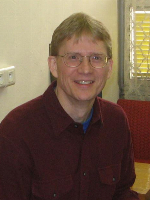Historical Sociolinguistics
Presenters: Carolina Amador-Moreno, Mark Richard Lauersdorf
BMRA2
This workshop will offer a general introduction to the relatively new field of Historical Sociolinguistics, defined by the North American Research Network in Historical Sociolinguistics (NARNiHS) as ‘the application/development of sociolinguistic theories, models, and methods for the study of historical language variation and change over time, or more broadly, the study of the interaction of language and society in historical periods and from historical perspectives’ (https://narnihs.org/?page_id=226).
Historical Sociolinguistics has grown into a productive area of investigation within the field of general linguistics, but how does one study historical states of language or society, and the historical interaction of language and society?
Since Elspaß introduced the notion (e.g., 2005), a strong methodological orientation in historical sociolinguistics has been on “language history from below” and “ego documents”. In This workshop we will deal with ego-documents such as letters and diaries, and we will learn to identify and exploit some linguistic datasets available to Historical Sociolinguistics. By looking at corpora such as the Corpus of Early English Correspondence (CEEC), we will reflect on the advantages of quantitative analyses historically, discuss new types of data visualization, and consider the balance (and synergies) between macro- and micro- approaches. We will also discover how historical language data can be used qualitatively to understand language ideologies and language use patterns, which may be complicated by modern conceptualizations of multilingualism. And lastly, we will explore the ways that historical language data can be used in interdisciplinary contexts, like forensic linguistics and material culture.
REFERENCES
Elspaß, Stephan. 2005. Sprachgeschichte von unten: Untersuchungen zum geschriebenen Alltagsdeutsch im 19. Jahrhundert. Tübingen: Niemeyer.
NARNiHS, https://narnihs.org/?page_id=226. Accessed 01/07/2024.
Keywords: Sociolinguistics, Variation, Corpus Linguistics, Language Change
Room STB 254, Mondays and Thursdays, July 7-August 7, 9:00am - 10:20am
Mondays and Thursdays
Presenters

University of Extremadura
I am the main convenor of the North American Research Network in Historical Sociolinguistics (NARNiHS). I became Full Professor of English Linguistics at the University of Bergen, Norway in 2020 and am currently based at the University of Extremadura, Spain. I have held different teaching positions at the Universities of Limerick (Ireland), University College Dublin (Ireland), Extremadura (Spain), and Bergen (Norway). My research interests centre on the English spoken in Ireland with a focus on historical sociolinguistics and corpus linguistics. My work has also dealt with stylistics, discourse analysis and pragmatics. My publications include articles and chapters dealing with these topics.

I am Professor of Linguistics at the University of Kentucky, where I work across the areas of historical linguistics, sociolinguistics, language contact, and corpus linguistics, bringing them all together in historical sociolinguistic research. My interests in historical sociolinguistics encompass both macro- and micro- aspects of the field. I get particularly excited about historical language contact situations that exhibit high numbers of language varieties in contact; no standard language or prestige variety; a multitude of geographical and political borders; and rapidly changing socio-cultural, socio-political, socio-economic contexts. In these contexts I pursue and promote the refinement of theories and methods for data-driven corpus-based quantitative sociolinguistic investigation of historical language variation and user interaction, using statistical and visualization methods of data analysis to identify and correlate salient patterns in the linguistic and socio-historical data, seeking to identify "who used what linguistic features with whom, when, where, why, and how" as a means of investigating historical language use and historical linguistic identity. I was the initiator and one of the founders of the North American Research Network in Historical Sociolinguistics (NARNiHS) to promote the field and encourage its growth among new generations of linguists; and I have served as Visiting Professor or Researcher at the Technische Universität Dresden, the Univerza v Ljubljani, and the Université de Lausanne, as well as at two previous LSA Linguistic Institutes and the Summer School of the Historical Sociolinguistics Network (HiSoN).
Room STB 254, Mondays and Thursdays, July 7-August 7, 9:00am - 10:20am
Mondays and Thursdays
